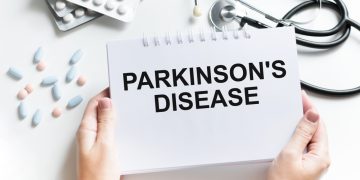April 11th marks World Parkinson’s Day, a global moment of reflection, awareness, and renewed action for the millions living with Parkinson’s disease (PD). This year, we not only spotlight the progress made in Parkinson’s research and care, but also highlight a growing imperative: ensuring that all communities, including seafarers, are not left adrift when it comes to health equity and access.
For seafarers—a population often working in isolated and high-risk environments—the need for early recognition, timely support, and tailored resources for chronic conditions like Parkinson’s is more pressing than ever.
A growing global concern
Parkinson’s disease is a progressive neurological disorder affecting movement, coordination, and mental health. Common symptoms include tremors, stiffness, slow movements, and balance issues. Non-motor symptoms such as sleep disturbances, depression, and cognitive decline are also prevalent.
According to the World Health Organization (WHO), global data shows that Parkinson’s is on the rise:
- Over 8.5 million people were living with PD in 2019—a number that continues to grow.
- Since 2000, disability-adjusted life years (DALYs) due to PD have surged by 81%.
- PD-related deaths have more than doubled in the same timeframe.
Despite these alarming figures, access to diagnosis, treatment, and rehabilitation remains patchy—especially for populations with limited access to specialist healthcare, such as seafarers.
Seafarers and Parkinson’s: A Hidden Risk
Maritime professionals face unique occupational health risks. Prolonged exposure to toxins, such as pesticides, solvents, and exhaust fumes, has been linked to increased Parkinson’s risk. Combined with age, genetic predisposition, and high-stress work environments, senior seafarers—particularly those over 50—may be more vulnerable.
Early warning signs to watch for at sea include:
- Tremors in the hands or arms
- Muscle rigidity or stiffness
- Slowed movements or difficulty initiating movement
- Problems with balance or coordination
These symptoms often start subtly and may be mistaken for fatigue or general aging. However, early detection and treatment can make a significant difference in quality of life.
Bridging the gap
This year, UCB launched the Parkinson’s Health Equity in R&D Community Leaders Board, focused on improving clinical trial representation among underserved populations. This includes those who work in mobile, hard-to-reach sectors like maritime.
Initiatives like the Patient Engagement Council for Parkinson’s Research (PECPR)—a collaboration between UCB, Parkinson’s UK, Parkinson’s Foundation, and individuals with PD—are pushing for real-world, patient-led solutions. These partnerships show how industry, advocacy, and affected individuals can work together to chart a better course.
Access and rehabilitation at sea
Currently, many standard treatments for Parkinson’s, including levodopa/carbidopa, are either unaffordable or inaccessible in low- and middle-income countries where many seafarers originate. Even when treatment is available, rehabilitation services like physiotherapy, speech therapy, and strength training remain rare aboard ships.
How can seafarers reduce their risk of Parkinson’s Disease?
While there’s no way to completely eliminate your risk of Parkinson’s disease, the UK Club has advised the following steps to reduce the risk:
- Protecting yourself from environmental toxins and pesticides. This would mean proper use of Personal Protective Equipment (PPE) on board the vessel, ensuring proper understanding of chemicals and compliance with the MSDS sheets when dealing with them.
- Being aware of the signs and symptoms, and seeking medical advice should they occur.
- Staying physically active to help maintain good balance and coordination.
- Eating a healthy diet that includes plenty of fruits, vegetables and whole grains.
- Getting regular check-ups with your doctor to monitor your health.
What can shipowners, maritime companies, and seafarers do?
- Implement basic onboard screening protocols and wellness checks for early symptoms.
- Educate senior officers and crew about Parkinson’s risks and signs.
- Ensure access to PPE and safe handling procedures for chemicals and toxins.
- Advocate for telehealth consultations with neurologists during port stops.
- Incorporate physical activity and rehabilitation programs into shipboard routines.
Care for carers
Parkinson’s doesn’t just affect the individual—it deeply impacts families, caregivers, and peers. At sea, where long contracts and remote duty stations separate seafarers from loved ones, the psychological toll can be significant. Peer support groups, mental health check-ins, and shore-based family engagement programs can help bridge this gap.
Breaking stigma, raising awareness
People with Parkinson’s continue to face stigma, discrimination, and misunderstanding, especially in physically demanding careers like seafaring. It’s time we change the tide. PD is not contagious. It is not a normal part of aging. With the right support, many can continue working, contributing, and living full lives.
Towards a healthier future
This World Parkinson’s Day, we acknowledge the ongoing challenges in diagnosis, treatment, and access—especially for seafarers. But we also celebrate the global efforts pushing for change. From equitable research boards to patient-led councils, the maritime world must now be part of the movement.
Let’s not let Parkinson’s go unnoticed at sea. Raise awareness, prioritize early detection, and ensure every seafarer—regardless of rank or route—has a right to health, dignity, and support.
Did you know?
Bertrand Delhom, an MSC crew member, turned his Parkinson’s diagnosis into a personal mission. Inspired by his maritime roots and global sailing network, he launched a campaign to raise awareness across the Atlantic and beyond. With connections to the Davis Phinney Foundation and Michael J. Fox Foundation, Delhom’s goal is to forge cross-continental partnerships for advocacy and research—proving that even from the deck of a ship, one voice can ripple across oceans.



























































